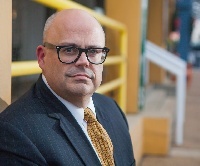Tougaloo Felony Lawyer, Mississippi
Not enough matches for Tougaloo Felony lawyer.
Below are all Tougaloo Criminal lawyers.
Mark Hutchison
✓ VERIFIEDI am a former assistant city prosecutor who has been practicing for over 20 years and have represented hundreds of clients. We are primarily a crimina... (more)
Bradley Clanton
✓ VERIFIEDA veteran attorney with years of “big firm” experience, who has opened his own law practice to fight for the justice that every man and woman dese... (more)
Bradley S. Clanton
✓ VERIFIEDA veteran attorney with years of “big firm” experience, he has opened his own law practice to fight for the justice that every man and woman deser... (more)
Robert Bryan Ogletree
✓ VERIFIEDRobert Ogletree has built a diverse practice representing both corporations and individuals. Mr. Ogletree's jury trials include cases involving medic... (more)
FREE CONSULTATION
CONTACT




